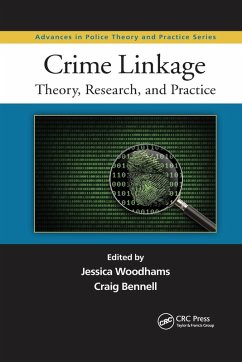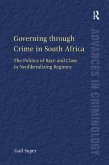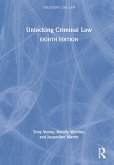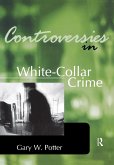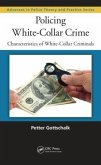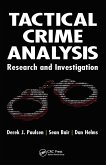The increasing portrayal of forensic investigative techniques in the popular media-CSI, for example, has resulted in criminals becoming "forensically aware" and more careful about leaving behind physical evidence at a crime scene. This presents law enforcement with a significant problem: how can they detect serial offenders if they cannot rely on physical forensic evidence? One solution comes from psychology. A growing body of research has amassed in the area of behavioral consistency and the detection of serial offenders. A number of innovations are taking place in the field that have important implications for the practice of crime linkage and its use by police and the courts. Crime Linkage: Theory, Research, and Practice assembles this research and discusses its practical use. Topics include: Theoretical explanations for how, when, and why we may (or may not) see similarities in a person's crime scene behavior Consistency and distinctiveness in sexual offending An overview of crime linkage research conducted to date The use of crime linkage in the United Kingdom, South Africa, and the United States New directions for research and practice, including linking across crime types to expand the suspect pool The range of statistical methods used in research of crime linkage principles The book represents a collaboration of researchers and practitioners from across the globe who are recognized as experts in the area of behavioral consistency and detection of serial offenders. They provide a comprehensive and informative text on the psychological and criminological theories underpinning crime linkage, how it is used in practice, the challenges practitioners face, and current innovations that will shape the future of crime linkage research and practice.
Produktdetails
- Verlag: Routledge
- Seitenzahl: 416
- Erscheinungstermin: 10. Dezember 2019
- Englisch
- Abmessung: 234mm x 156mm x 22mm
- Gewicht: 629g
- ISBN-13: 9780367867072
- ISBN-10: 0367867079
- Artikelnr.: 58450010
- Libri GmbH
- Europaallee 1
- 36244 Bad Hersfeld
- gpsr@libri.de
- Verlag: Routledge
- Seitenzahl: 416
- Erscheinungstermin: 10. Dezember 2019
- Englisch
- Abmessung: 234mm x 156mm x 22mm
- Gewicht: 629g
- ISBN-13: 9780367867072
- ISBN-10: 0367867079
- Artikelnr.: 58450010
- Libri GmbH
- Europaallee 1
- 36244 Bad Hersfeld
- gpsr@libri.de
Dr. Craig Bennell is a professor of psychology at Carleton University (Canada). He is also the director of the Police Research Lab and editor of the Journal of Police and Criminal Psychology. His primary research examines the reliability, validity, and usefulness of psychologically based investigative techniques, including methods used to link serial crimes. He also studies police decision making, especially in use of force encounters. He is a founding member of the Crime Linkage International Network (C-LINK), which intends to build academic-practitioner partnerships for the purpose of making crime linkage research more operationally relevant. Dr. Jessica Woodhams is a forensic psychologist and a senior lecturer in forensic psychology at the University of Birmingham (UK). In 2013, she founded the Crime Linkage International NetworK, a global network of practitioner and academic experts in the field of crime linkage. Her PhD thesis focused on investigating juvenile sex offending and included a large section on crime linkage. She is regularly invited to speak at international conferences regarding crime linkage and sexual offending. Her expertise has been sought by organizations such as the Metropolitan Police Service and the Scottish Crown Office on matters pertaining to crime linkage and behavioral similarity.
Introduction: Time to Consolidate and Reflect. Consistency and
Distinctiveness of Criminal Behavior. Sex Crime Linkage: Sexual Fantasy and
Offense Plasticity. The Effect of Mental Disorder on Crime Scene Behavior,
Its Consistency, and Variability. Linking Crimes with Spatial Behavior: A
Need to Tackle Some Remaining Methodological Concerns. Testing the Theories
Underpinning Crime Linkage. A Cross-National Comparison of Behavioral
Consistency in Serial Homicide. Crime Linkage: A Practitioner's Perspective
on Theory, Practice, and Research. The Use of Linkage Analysis Evidence in
Serial Offense Trials. Crime Linkage as Expert Evidence-Making a Case for
the Daubert Standard. The Ability of Human Judges to Link Crimes Using
Behavioral Information: Current Knowledge and Unresolved Issues. Extending
Crime Linkage to Versatile Offenders. Exploring If (Situation) ... Then
(Behavior) Contingencies in Interpersonal Crimes. Informing Practice:
Research Methods in Crime Linkage Analysis. Crime Linkage Research: Where
to from Here? Index.

